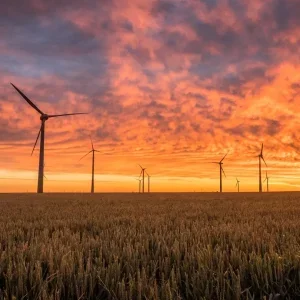Future investment in UK onshore wind power is being jeopardised by mixed messages from the coalition government, according to a leading UK think-tank.
"This government is giving us contradictions, U-turns and the most uncertain policy context in Europe," said Stephen Devlin, economist at the left-leaning New Economics Foundation.
"Investors need to feel the UK is dedicated to developing a permanent clean energy system, and that we’re not just going to give up as soon as we hit a bump in the road. What we sign into law is only half the issue. Culture and rhetoric are also hugely important."
Mr Devlin’s comments come in response to a spate of conflicting policies and speeches from coalition government ministers this December.
Speaking at the Commons Liaison Committee meeting last week, prime minister David Cameron said the public was "fed up" with onshore wind, adding that once capacity reached 10% of UK energy demand, that would be "enough". He also restated the Conservative’s manifesto pledge to end subsidies for onshore projects that have not yet been approved.
But the response from energy secretary Ed Davey’s spokesperson directly contradicted the PM, stating that over two thirds of the British public were in favour of onshore wind energy, according to the latest research from the Department of Energy and Climate Change (DECC). The energy secretary has also recently described the Conservative’s plan to end onshore subsidies as "disastrous for business and jobs in our growing green economy."
The local government secretary, Eric Pickles, also faced sharp criticism earlier this month for ongoing interference in onshore wind planning applications.
The Communities and Local government Select Committee said Mr Pickles was taking too long to make planning decisions, potentially deterring investors. Mr Pickles has intervened in 52 onshore wind projects since June 2013. Of the 26 he has made final decisions on, 23 have been refused.
Meanwhile, business secretary Vince Cable recently launched a National College for Wind Energy: a planned multi-million pound training facility for the next generation of wind energy professionals.
The college has already attracted substantial investment from multiple energy firms, and the Department for Business, Innovation & Skills has promised to match private sector funding in the nationwide initiative, according to industry trade association, RenewableUK.
When asked to clarify the government’s position on onshore wind, DECC said it could not comment on what individual parties were promising.
"Our policies are designed to keep the lights on, cut energy use and reduce polluting emissions, at the lowest possible cost to gas and electricity customers," a DECC spokesperson said.
"To deliver this we need a diverse energy mix that includes renewable sources like wind and solar which work alongside nuclear and technologies like carbon capture and storage so we can continue to use fossil fuels in a cleaner way."






